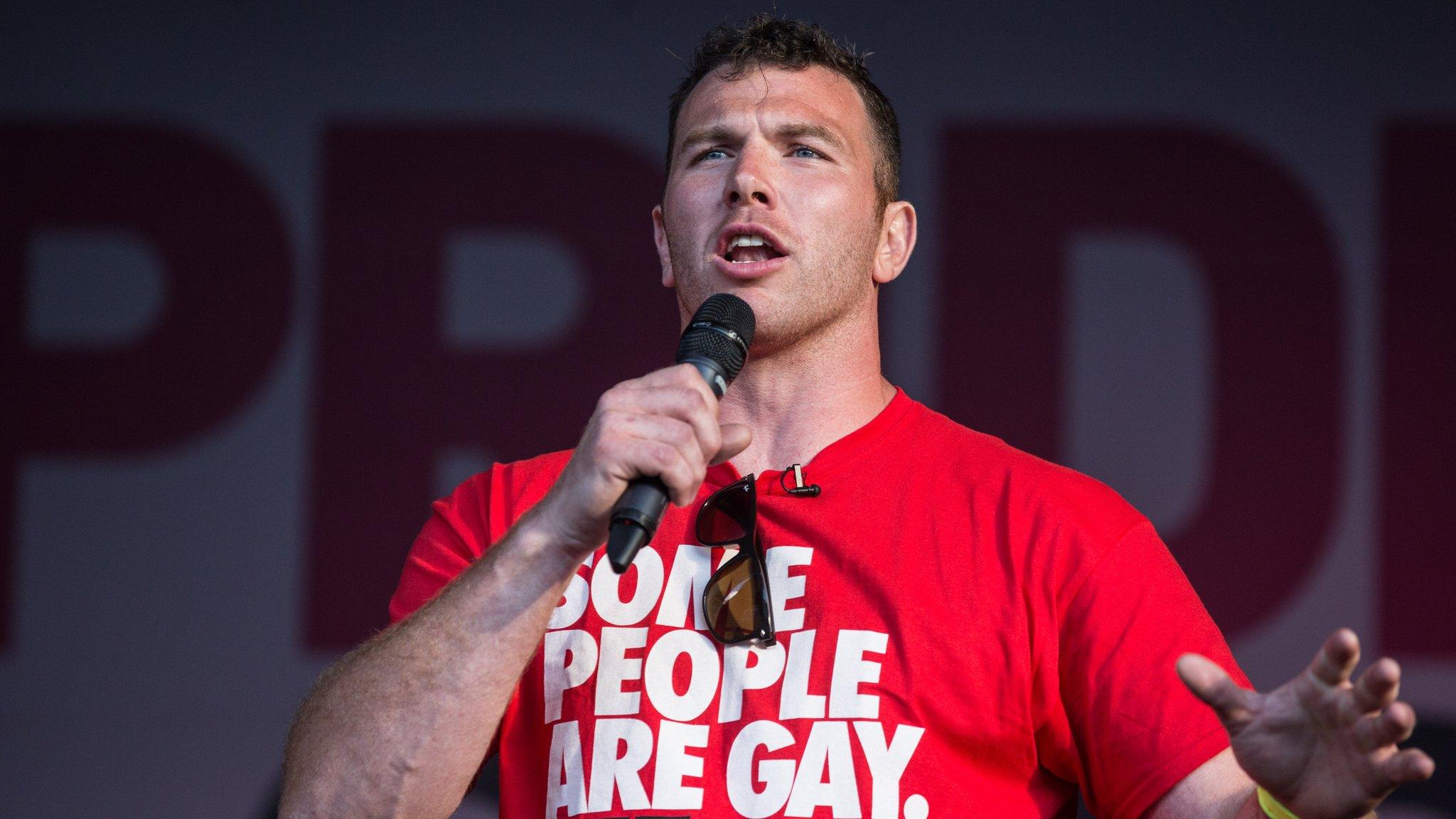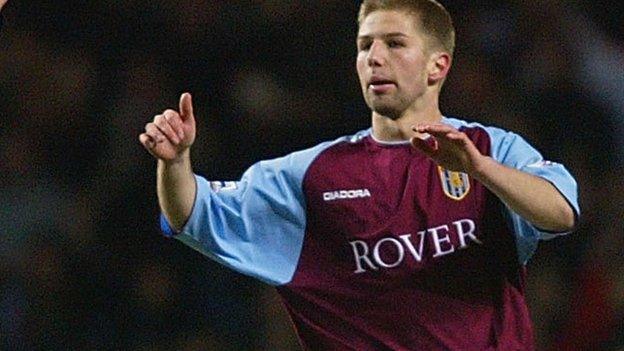FA chairman Greg Clarke: Footballers should come out collectively
- Published
5 live polled more than 4,000 people into attitudes about homophobia in sport - the results were revealed in October 2016
Football Association chairman Greg Clarke says he has spoken to gay footballers and suggested they come out collectively rather than on their own.
Clarke said in October that Premier League players may suffer "significant abuse" if they said they were gay.
A BBC Radio 5 live survey in October found 8% of fans would stop watching their team if they signed a gay player.
Clarke told The Times:, external "If a number of top-level pros want to come out, why don't we synchronise it?"
Clarke added any announcements could be made when the fans were in a more positive mood.
"The Premier League, the English Football League and FA could do it at the start of the season," he continued. "At the start, everybody thinks it's their season, the crowds are happy, the sun is shining.
"I was asked if football is ready for top-level pros to come out and I said I'm not sure we were.
"There was a survey which said people would support gay people in their own team, but I'm worried about what they would say about gay people in the other team."
Ed Connell, from the Gay Football Supporters' Network, believes elements of the game still need to be addressed to create a "safe environment" in which players can come out as gay.
He told BBC Radio 5 live: "Only a matter of months ago, Greg Clarke said the game wasn't ready yet for a player to come out. I think he was right.
"The sentiment is good, coming out as a group would be a lot easier. Until we eliminate gay banter among players or gay chanting on terraces it will not happen."
In 1990, Justin Fashanu became the first player in England to come out as gay. He took his own life in 1998, aged 37. No male professional player has since come out while playing in England.
Clarke said he did not want to persuade any players to reveal their sexuality.
"It is very difficult to get a representative set of gay top-level footballers because some of them are happy with their sexuality and don't want anyone to know," he added.
"I don't want to be part of a process that says: 'You've got to come out.' That's not right. People are cautious. Once you're out of the closet, you're out."
- Published26 October 2016

- Published8 January 2014
